
Marijampolė: The Heart of Southern Lithuania
Marijampolė is a charming town nestled in the heart of southern Lithuania. Known for its rich history and vibrant culture, it offers a unique glimpse into the traditional Lithuanian way of life. The city is adorned with picturesque parks, historical buildings, and a warm, welcoming atmosphere that invites visitors to explore and relax. One of the highlights of Marijampolė is its stunning architecture. The Old Town is a must-visit, featuring beautifully preserved buildings that date back to the 18th century. The Basilica of St. Michael the Archangel stands as a testament to the city's religious significance and architectural grandeur. Walking through the cobbled streets, you'll feel as if you've stepped back in time, surrounded by the elegance of the past. Nature lovers will find plenty to admire in Marijampolė's lush parks and riverside walks. The Šešupė River flows gracefully through the city, providing scenic spots for picnics and leisurely strolls. P. Kriaučiūnas Park is another gem, offering green spaces, playgrounds, and a serene lake. It's the perfect place to unwind and enjoy the natural beauty of the region. Marijampolė also boasts a thriving cultural scene. The city hosts various festivals and events throughout the year, celebrating everything from local traditions to contemporary arts. The Marijampolė Cultural Center is a hub for performances, exhibitions, and community gatherings. Whether you're interested in music, dance, or theater, there's always something happening to pique your interest. Culinary enthusiasts will delight in the local cuisine. Traditional Lithuanian dishes such as cepelinai (potato dumplings) and šaltibarščiai (cold beet soup) are served in cozy restaurants and cafes. Don't miss the chance to sample the region's unique flavors and immerse yourself in the local food culture. With its blend of history, nature, and culture, Marijampolė offers a truly enriching experience for tourists. Whether you're seeking a quiet retreat or an engaging cultural adventure, this charming Lithuanian city has something special to offer.
Local tips in Marijampolė
- Visit the Marijampolė Regional Museum to learn about the city's history and cultural heritage.
- Take a leisurely walk along the Šešupė River for picturesque views and a peaceful atmosphere.
- Attend a local festival or event to experience the city's lively cultural scene.
- Try traditional Lithuanian dishes at local restaurants for an authentic culinary experience.
- Explore the Old Town on foot to fully appreciate the historical architecture and charming streets.
Marijampolė: The Heart of Southern Lithuania
Marijampolė is a charming town nestled in the heart of southern Lithuania. Known for its rich history and vibrant culture, it offers a unique glimpse into the traditional Lithuanian way of life. The city is adorned with picturesque parks, historical buildings, and a warm, welcoming atmosphere that invites visitors to explore and relax. One of the highlights of Marijampolė is its stunning architecture. The Old Town is a must-visit, featuring beautifully preserved buildings that date back to the 18th century. The Basilica of St. Michael the Archangel stands as a testament to the city's religious significance and architectural grandeur. Walking through the cobbled streets, you'll feel as if you've stepped back in time, surrounded by the elegance of the past. Nature lovers will find plenty to admire in Marijampolė's lush parks and riverside walks. The Šešupė River flows gracefully through the city, providing scenic spots for picnics and leisurely strolls. P. Kriaučiūnas Park is another gem, offering green spaces, playgrounds, and a serene lake. It's the perfect place to unwind and enjoy the natural beauty of the region. Marijampolė also boasts a thriving cultural scene. The city hosts various festivals and events throughout the year, celebrating everything from local traditions to contemporary arts. The Marijampolė Cultural Center is a hub for performances, exhibitions, and community gatherings. Whether you're interested in music, dance, or theater, there's always something happening to pique your interest. Culinary enthusiasts will delight in the local cuisine. Traditional Lithuanian dishes such as cepelinai (potato dumplings) and šaltibarščiai (cold beet soup) are served in cozy restaurants and cafes. Don't miss the chance to sample the region's unique flavors and immerse yourself in the local food culture. With its blend of history, nature, and culture, Marijampolė offers a truly enriching experience for tourists. Whether you're seeking a quiet retreat or an engaging cultural adventure, this charming Lithuanian city has something special to offer.
When is the best time to go to Marijampolė?
Iconic landmarks you can’t miss
Poetry Park in Marijampolė
Experience the enchanting Poetry Park in Marijampolė, where literature and nature unite in a serene escape filled with beauty and inspiration.
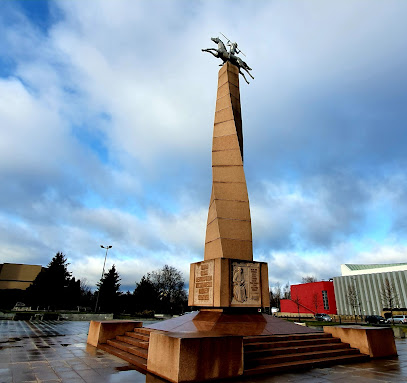
Jurgos kebabai
Experience the authentic taste of kebabs in Marijampolė at Jurgos Kebabai, where flavor meets tradition in a cozy setting.
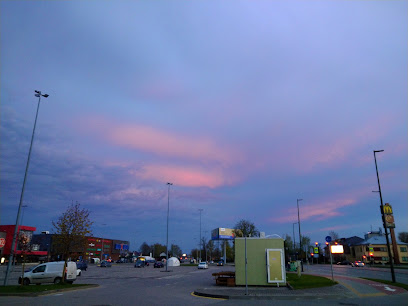
Marijampole Vytautas the Great Park
Experience the natural beauty and tranquility of Vytautas the Great Park, a must-visit destination for tourists in Marijampole, Lithuania.
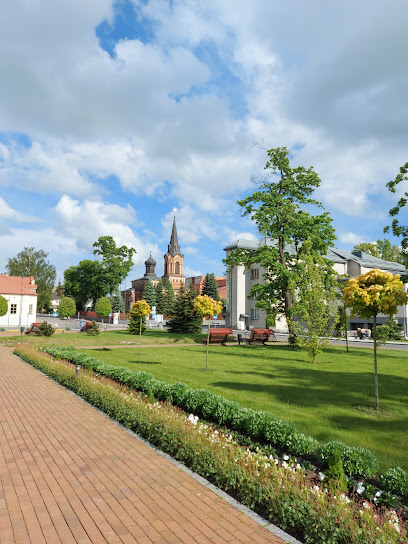
Mercure Marijampole
Discover the perfect blend of comfort and local charm at Mercure Marijampole, your ideal base for exploring the vibrant culture of Marijampolė.

Kačių kiemelis
Discover the tranquil beauty of Kačiūn kiemelis, a serene city park in Marijampolė, perfect for relaxation and nature exploration.
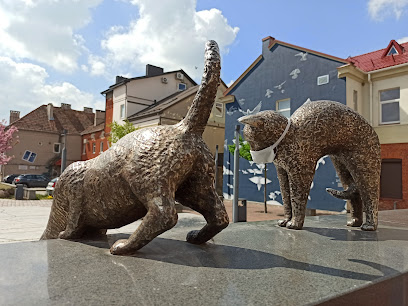
7 Miglos Marijampolė - Hookah shop bar - Kaljano tabakas - kaljanai ir kaljanų priedai - kaljano nuoma
Explore the vibrant hookah culture at 7 Miglos in Marijampolė, where relaxation meets social enjoyment in a cozy lounge environment.
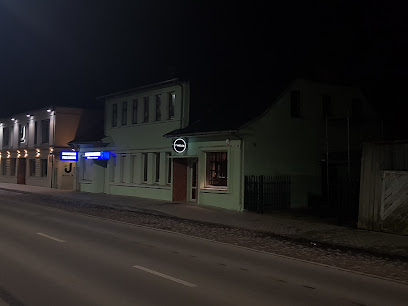
Basilica of Saint Michael the Archangel
Discover the rich history and stunning architecture of the Basilica of Saint Michael the Archangel in Marijampolė—an unforgettable cultural landmark in Lithuania.
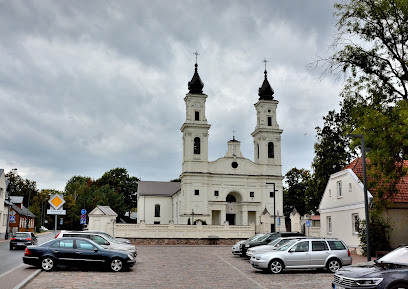
Marijampolė Tauro District Museum Dedicated to Partisans and Deportees
Explore Marijampolė Tauro District Museum to uncover the poignant history of Lithuanian partisans and deportees, a must-visit for history enthusiasts.
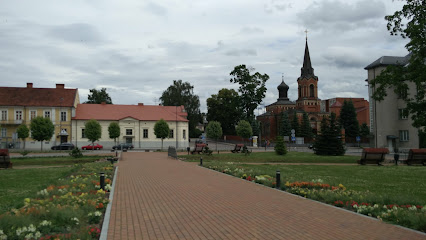
Kubilkiemis Antique Car and Motorcycle Museum
Explore the fascinating world of vintage vehicles at Kubilkiemis Antique Car and Motorcycle Museum in Marijampolė, Lithuania.
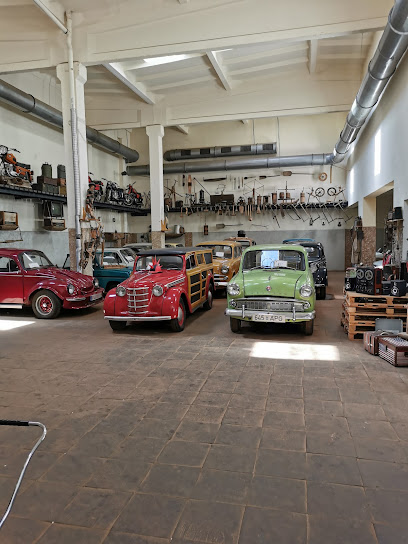
Marijampole Train Station
Discover Marijampolė Train Station, a historic gateway connecting you to the beautiful landscapes and culture of Lithuania.
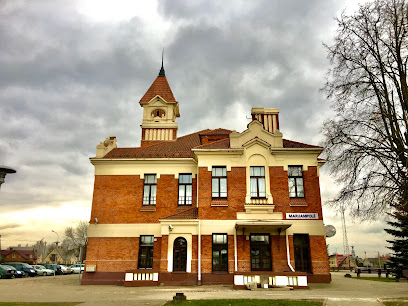
Marijampolė Tourism and Business Information Centre “SMART Marijampolė“
Explore Marijampolė with the SMART Tourism Centre: Your guide to local attractions, culture, and business insights in Lithuania's vibrant city.
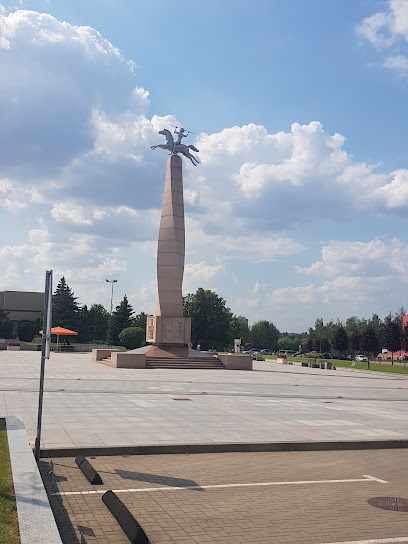
Memorial Museum of Lithuanian President K. Grinius
Discover Lithuania's history at the Memorial Museum of Lithuanian President K. Grinius, where the past meets the present in an engaging cultural experience.
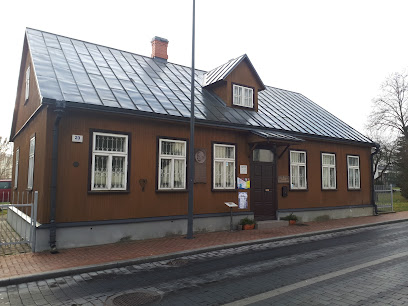
Marijampole Synagogue
Explore the Marijampole Synagogue, a historic landmark reflecting Lithuania's rich Jewish heritage and architectural beauty.
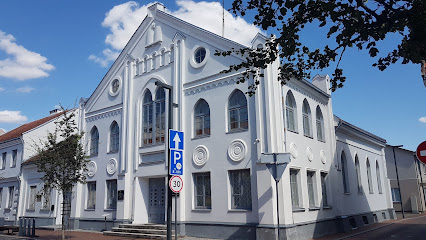
Museum of the Blessed Jurgis Matulaitis
Explore the Museum of the Blessed Jurgis Matulaitis in Marijampolė, where faith and history intertwine in a captivating cultural experience.
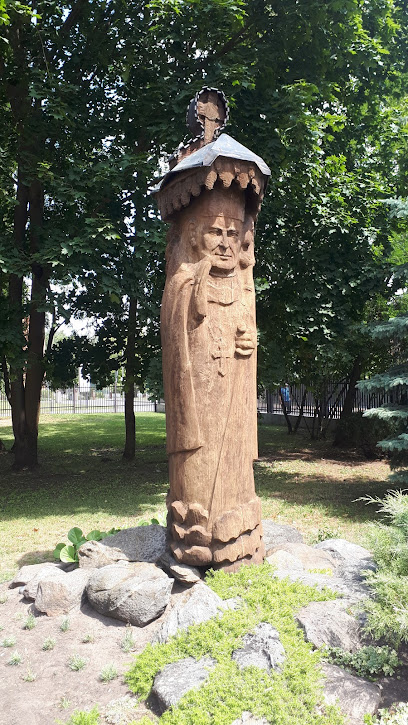
Holocaust Memorial
Experience the profound history of the Holocaust at the Marijampolė Memorial – a poignant tribute to the past and a reminder of resilience.
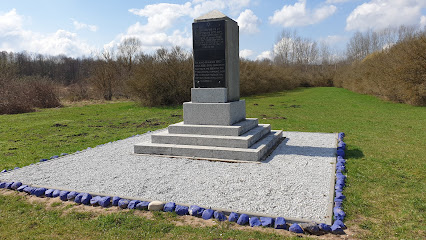
Unmissable attractions to see
Poetry Park in Marijampolė
Discover the serene Poetry Park in Marijampolė, where nature and literature beautifully intertwine for a tranquil escape.
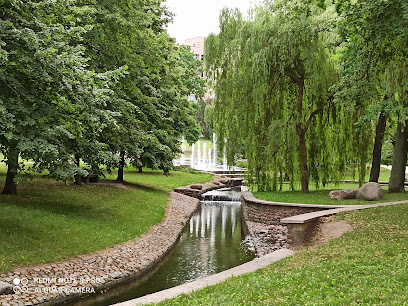
Marijampole Vytautas the Great Park
Explore Marijampole Vytautas the Great Park, a lush urban oasis perfect for relaxation, recreation, and cultural experiences in the heart of Lithuania.
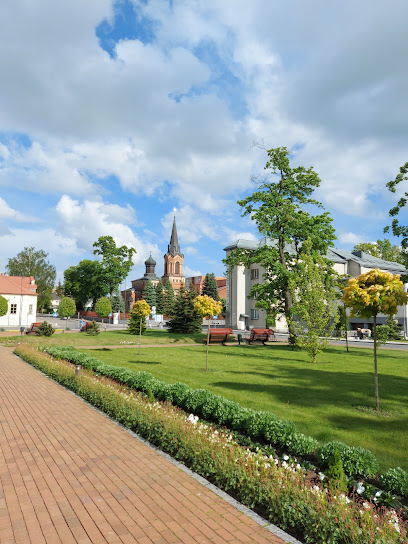
Kačių kiemelis
Explore Kačiūn kiemelis, a serene city park in Marijampolė, where nature meets community spirit in a tranquil setting.
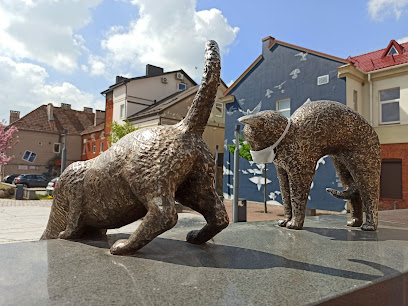
Pašešupio Parkas
Explore the enchanting landscapes of Pašėšupio Parkas in Marijampolė, where nature and tranquility await every visitor.
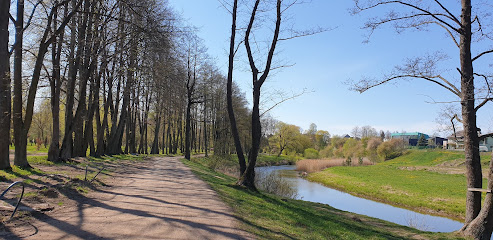
Basilica of Saint Michael the Archangel
Discover the serene beauty and rich heritage of the Basilica of Saint Michael the Archangel in Marijampolė, a stunning architectural treasure.
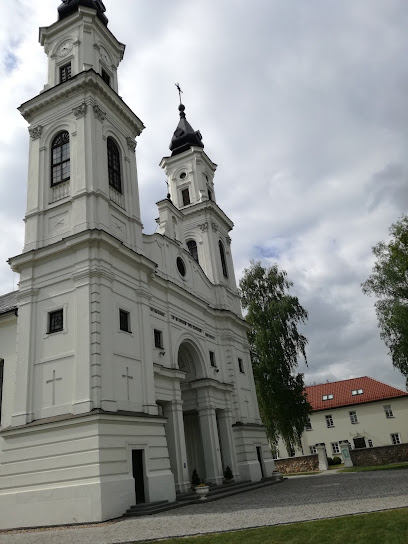
Marių parkas
Experience the natural beauty and recreational delights of Marių Parkas in Marijampolė, a serene city park perfect for relaxation and family fun.
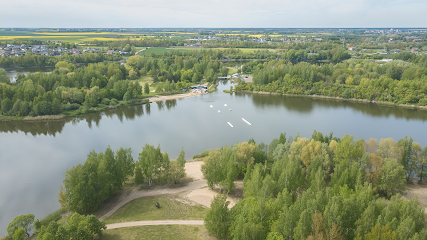
Marijampolė Flower Market
Immerse yourself in the vibrant colors and fragrances of Marijampolė Flower Market, a must-visit for flower lovers and culture seekers in Lithuania.
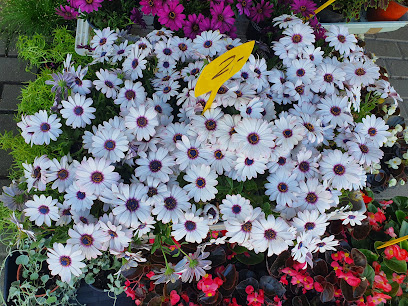
Peace Park
Explore the serene beauty of Peace Park in Marijampolė, a tranquil spot for relaxation, culture, and nature amidst the city's charm.
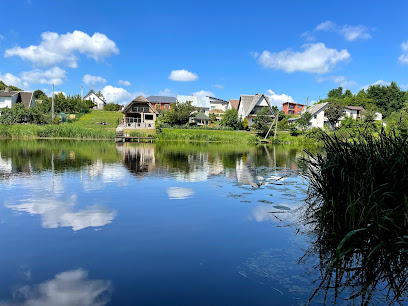
Kubilkiemis Antique Car and Motorcycle Museum
Explore the fascinating past of automobiles at Kubilkiemis Antique Car and Motorcycle Museum in Marijampolė, where history and nostalgia collide.
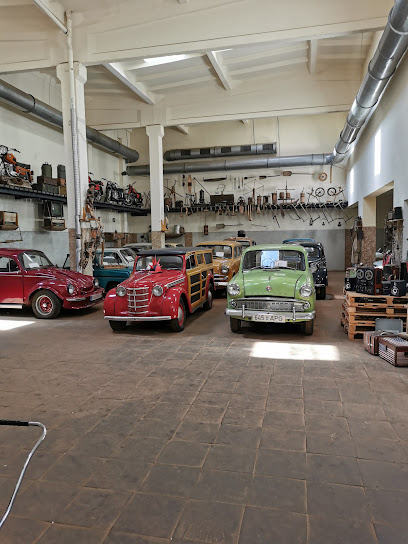
Marijampolė Tauro District Museum Dedicated to Partisans and Deportees
Discover the poignant history of Lithuania at the Marijampolė Tauro District Museum, dedicated to the stories of partisans and deportees.
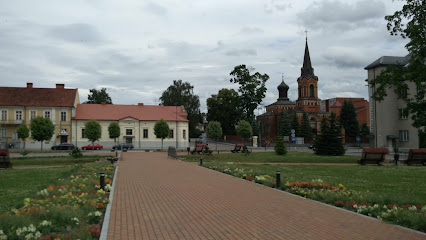
Pašešupio parkas
Explore the serene beauty of Pašėšupio Parkas in Marijampolė Municipality, a perfect destination for nature lovers and outdoor enthusiasts.
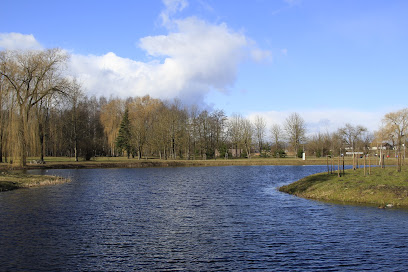
Kvietiškis Manor Park
Discover the lush landscapes and historical charm of Kvietiškis Manor Park in Marijampolė, a perfect retreat for nature lovers and history enthusiasts.
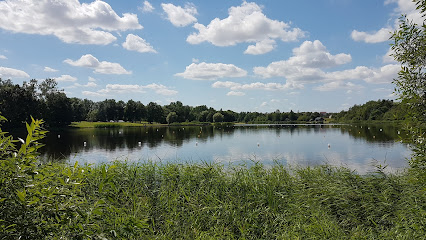
Liudvinavo parkas
Experience the serenity of Liudvinavo Park, a lush green oasis in Marijampolė Municipality perfect for relaxation and nature lovers.
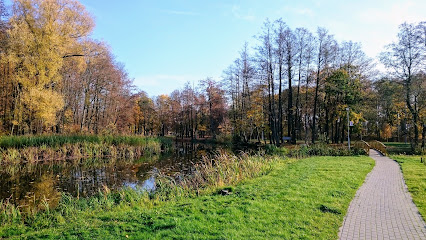
Meškučių piliakalnis
Explore the ancient beauty of Meškuičių Piliakalnis, where history meets breathtaking landscapes in the heart of Lithuania.
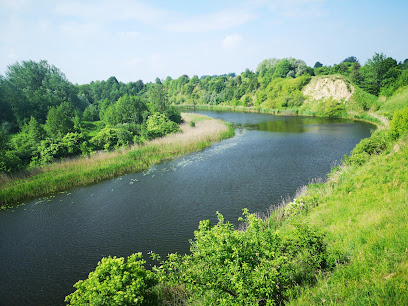
Varnupiai mound
Discover the ancient Varnupiai Mound in Marijampolė, a historical gem offering breathtaking views and a rich cultural experience.
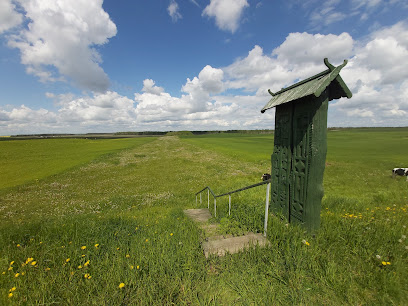
Essential places to dine
Grilio kavinė-baras Kampas
Experience authentic Lithuanian flavors at Grilio Kavinė-Baras Kampas in Marijampolė – where every meal is a celebration of local cuisine.
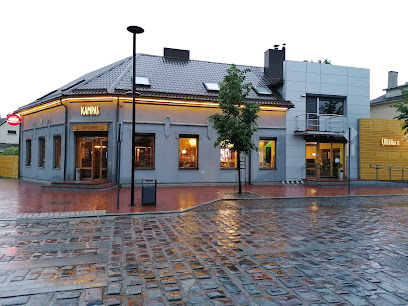
Mary J. Pub
Discover Mary J. Pub in Marijampolė - where delicious grill flavors meet vibrant atmosphere for an unforgettable dining experience.
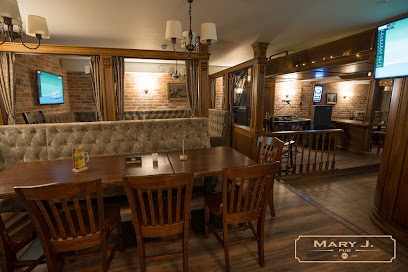
PJazz
Discover PJazz in Marijampolė: A vibrant restaurant offering fresh flavors and inviting ambiance for an unforgettable dining experience.
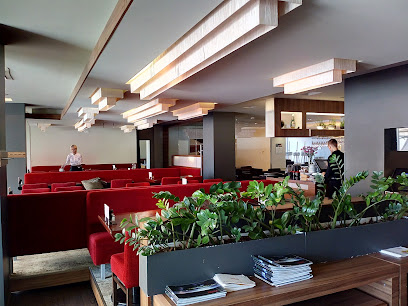
Suduvos arka, R. Marazo imone
Experience authentic Lithuanian cuisine at Suduvos Arka in Marijampolė - where tradition meets modern dining.
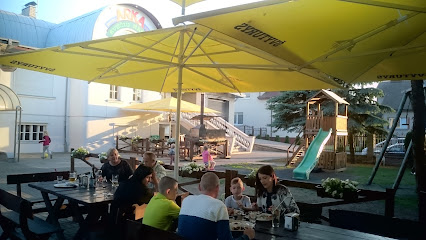
Namų Restoranas
Experience authentic Lithuanian flavors at Namų Restoranas in Marijampolė – where tradition meets taste in a cozy setting.
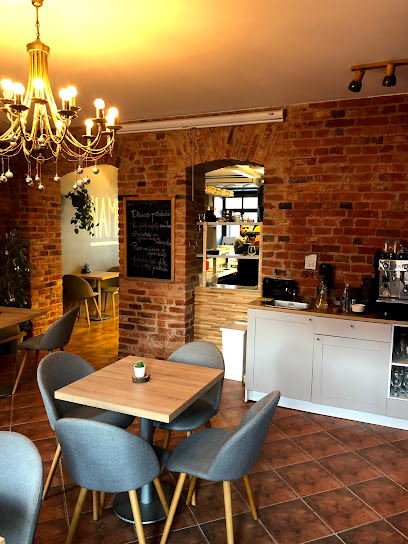
Senamieščio legenda kavinė
Experience the cozy ambiance and delightful flavors at Senamieščio Legenda Café in Marijampolė – your perfect coffee getaway.
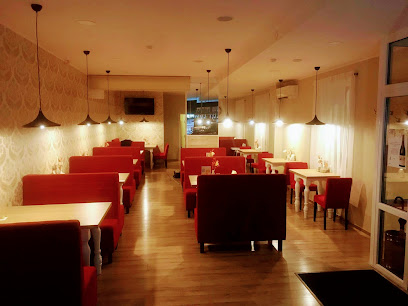
Big House Burgers
Experience the best burgers in Marijampolė at Big House Burgers – where quality meets flavor in every bite.
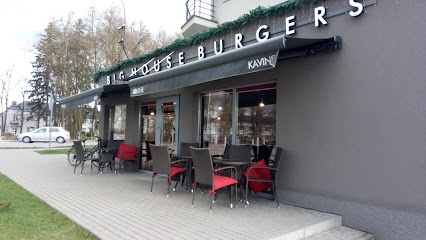
Sporto-Kebabine
Discover authentic Lithuanian flavors at Sporto-Kebabine in Marijampolė – your go-to destination for delicious kebabs at unbeatable prices.
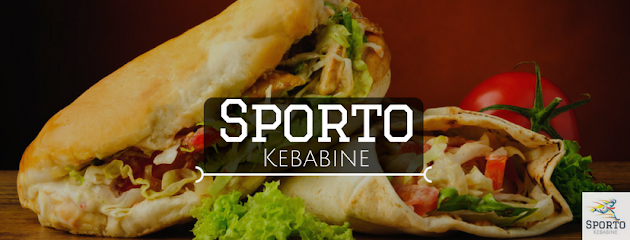
Sushi Masters
Experience authentic Japanese flavors at Sushi Masters in Marijampolė – where fresh ingredients meet culinary artistry.
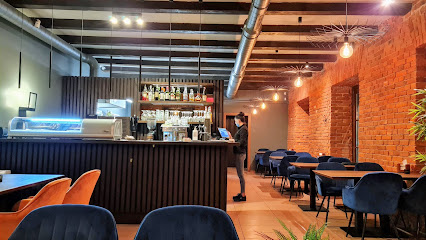
Central grill & lounge
Experience the best of local cuisine at Central Grill & Lounge in Marijampolė - where every meal is a celebration of flavors.
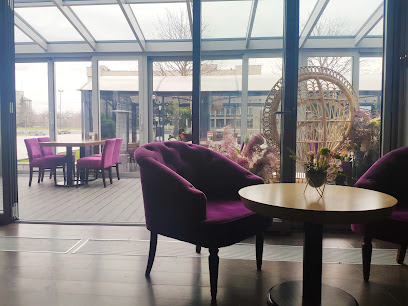
Savi Gastrobar
Discover the flavors of Lithuania at Savi Gastrobar in Marijampolė – where tradition meets innovation in every dish.
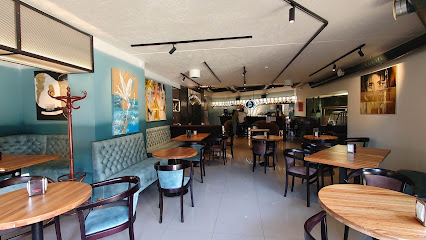
TORINO Lounge
Discover the taste of Marijampolė at TORINO Lounge - where local flavors meet modern dining.
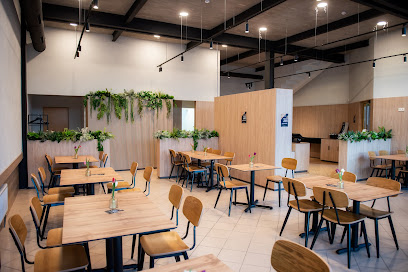
Bamboo - kinų restoranas
Experience authentic Chinese flavors at Bamboo Restaurant in Marijampolė – where every dish tells a story.
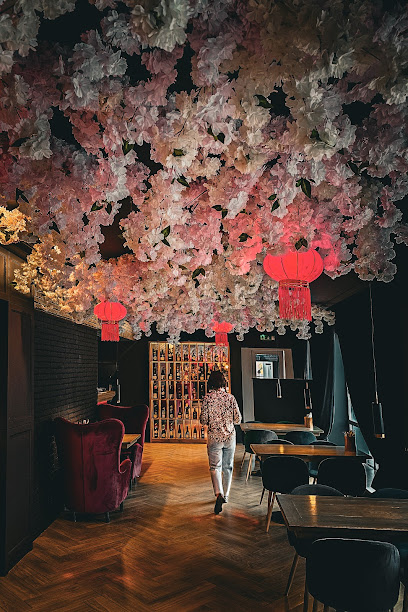
Bistro bistro
Discover authentic Lithuanian cuisine at Bistro Bistro in Marijampolė - where every dish tells a story.
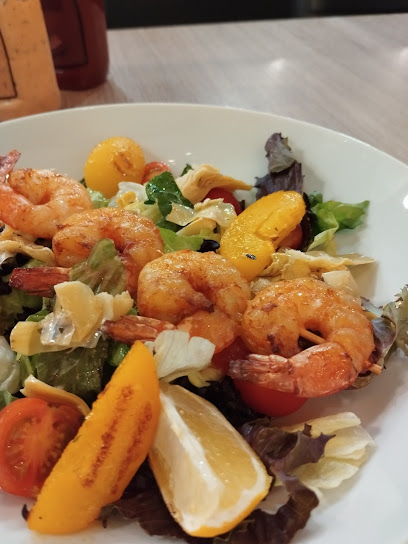
Torino date
Experience exquisite dining at Torino Date in Marijampolė, where local flavors meet international cuisine in a cozy atmosphere.
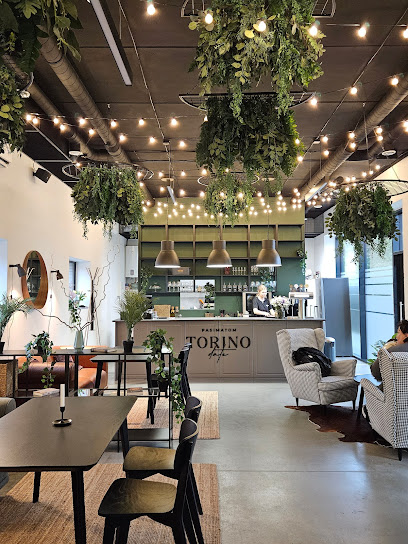
Markets, malls and hidden boutiques
Maxima
Explore Marijampolė's vibrant marketplace at Maxima, offering a variety of local and international products for every taste.
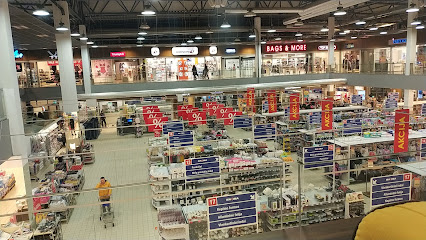
IKI - MARIJAMPOLĖ
Experience the vibrant flavors and local produce at IKI - Marijampolė, your go-to grocery store for fresh goods in Lithuania.
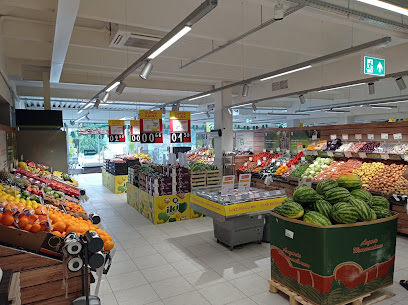
Norfa XL
Explore the vibrant atmosphere of Norfa XL, Marijampolė's premier hypermarket, showcasing local flavors and an extensive range of products for every visitor.
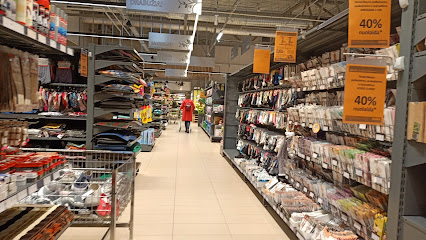
IKI - AUŠRA
Explore the best of Marijampolė at IKI - AUŠRA, your one-stop grocery store for fresh produce and local flavors.
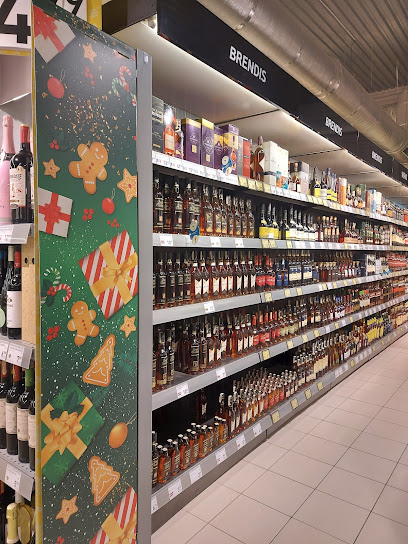
Pepco
Discover Pepco in Marijampolė - your ultimate destination for affordable clothing, baby essentials, home decor, and toys for the whole family!
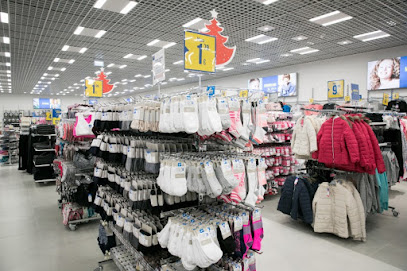
Save24.lt
Experience local charm and exceptional finds at Save24.lt, your one-stop shop in Marijampolė for unique products and unforgettable service.
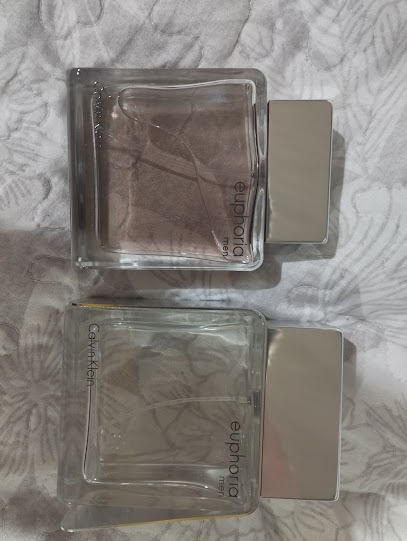
JYSK Marijampolė
Explore JYSK Marijampolė for stylish, affordable furniture that enhances your living spaces with Scandinavian design and practicality.
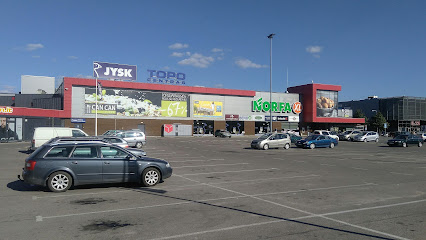
Topo centras
Explore the latest in electronics, appliances, and gadgets at Topo Centras in Marijampolė, where technology meets convenience.
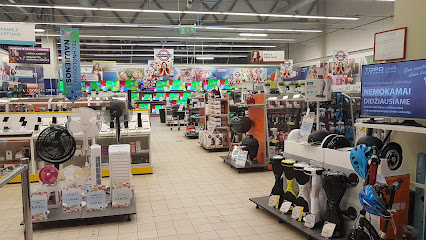
Prekybos centras Kubas
Experience the vibrant shopping culture of Marijampolė at Prekybos centras Kubas, where local charm meets international flair.
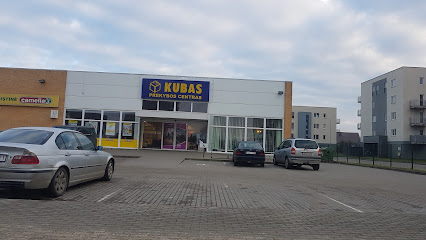
Pegasas
Discover Pegasas, the enchanting book store in Marijampolė, where literature and community come together for an unforgettable experience.
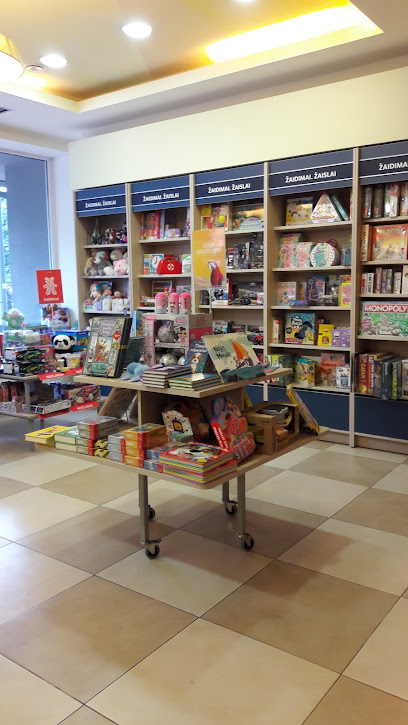
J. Slavinsko trade and service company
Explore top-quality electronics at J. Slavinsko in Marijampolė, where exceptional service meets a diverse selection of products.
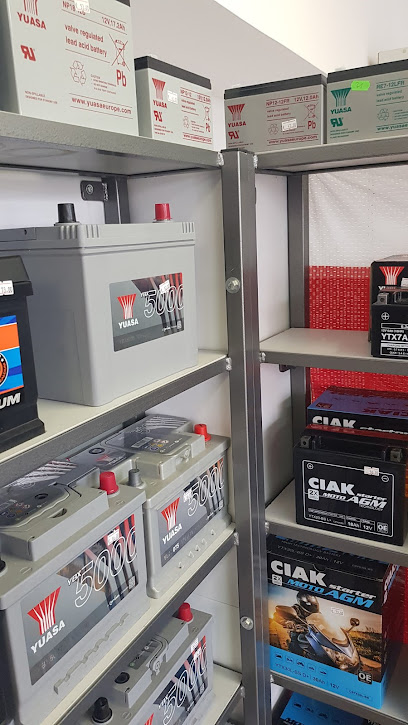
SINGLE HOOK REAR
Discover top-notch fishing gear and expert advice at Single Hook Rear, Marijampolė's premier fishing store, perfect for anglers of all levels.
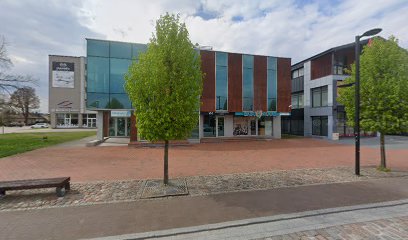
GEDIMINO 2, shoping center
Discover the vibrant shopping experience at Gedimino 2 Shopping Center in Marijampolė, offering unique stores, delicious dining, and local culture.
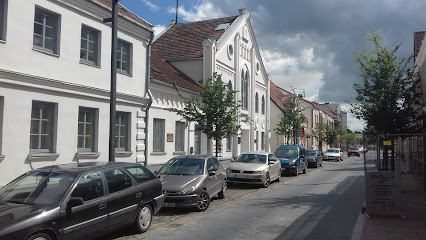
Muzi.lt Muzikos prekės
Explore Muzi.lt in Marijampolė for an unparalleled selection of musical instruments and accessories that resonate with every music lover's soul.
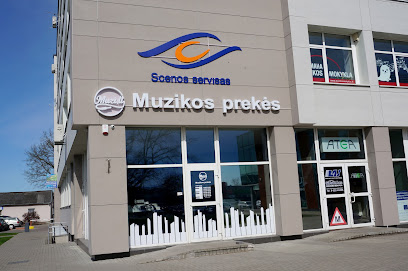
Sportland
Discover top-quality sportswear and gear at Sportland in Marijampolė, where active living meets style and community spirit.
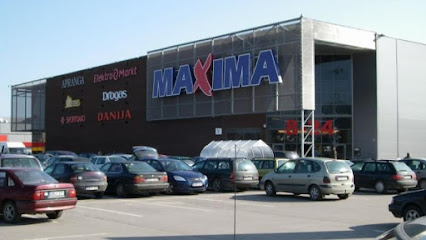
Essential bars & hidden hideouts
Nica
Experience the vibrant atmosphere and delightful offerings at Nica, a premier bar and cafeteria in Marijampolė, perfect for relaxation and local flavor.
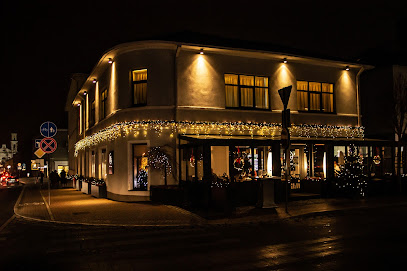
Miami sushi
Experience the exquisite taste of sushi at Miami Sushi in Marijampolė, where fresh ingredients meet vibrant flavors in a welcoming atmosphere.
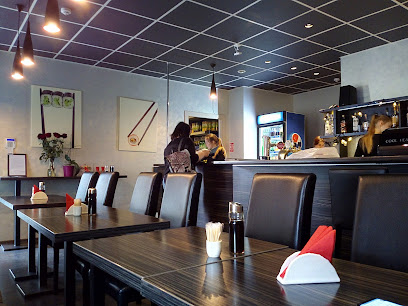
Grilio kavinė-baras Kampas
Discover the flavors of Marijampolė at Grilio Kavinė-Baras Kampas, where local ingredients meet culinary creativity in a cozy atmosphere.
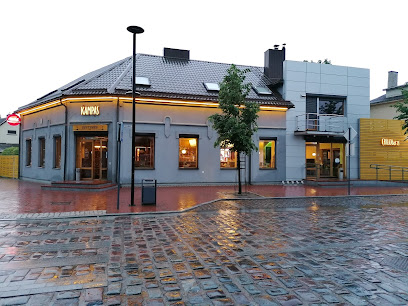
Mary J. Pub
Experience the lively atmosphere and delicious grilled dishes at Mary J. Pub in Marijampolė, a perfect stop for food lovers and night owls.
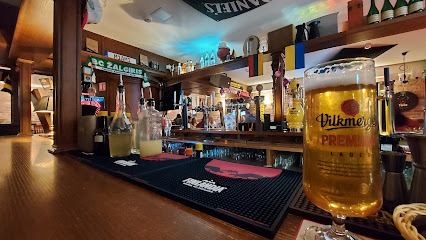
kamBARys
Experience the lively atmosphere at kamBARys, Marijampolė's go-to bar for delicious drinks and unforgettable nights out.
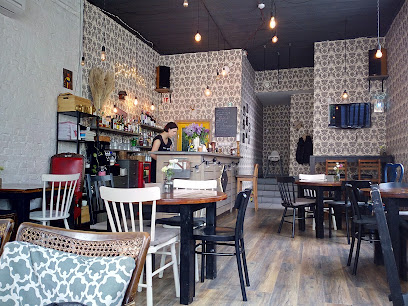
Namų Restoranas
Experience authentic Lithuanian cuisine in a cozy atmosphere at Namų Restoranas, the heart of Marijampolė's culinary scene.
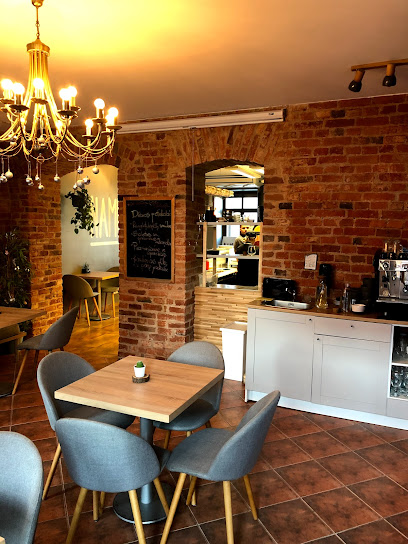
Senamieščio legenda kavinė
Experience the cozy charm of Senamieščio Legenda Café in Marijampolė, where delicious local flavors and a welcoming atmosphere await every visitor.
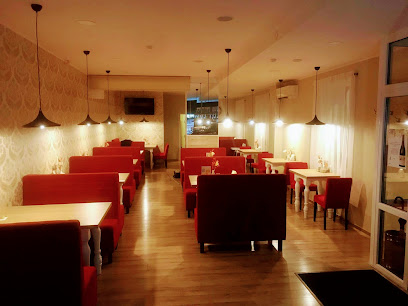
7 Miglos Marijampolė - Hookah shop bar - Kaljano tabakas - kaljanai ir kaljanų priedai - kaljano nuoma
Discover the vibrant lounge atmosphere at 7 Miglos, Marijampolė's top hookah bar offering premium flavors and a welcoming ambiance.
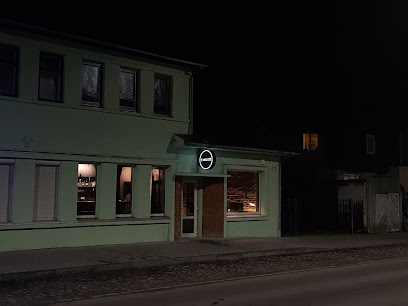
Sporto-Kebabine
Experience authentic local flavors at Sporto-Kebabine, Marijampolė's premier destination for delicious kebabs and a friendly atmosphere.
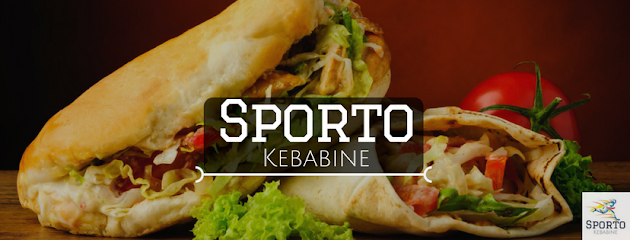
Sushi Masters
Discover the authentic flavors of Japan at Sushi Masters in Marijampolė - a sushi lover's paradise with fresh ingredients and vibrant ambiance.
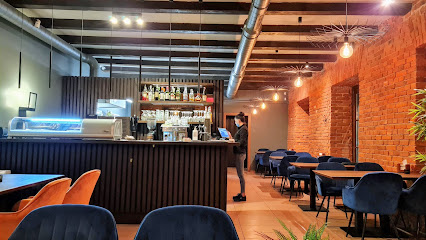
Central grill & lounge
Experience the flavors of Marijampolė at Central Grill & Lounge, where local meets international cuisine in a cozy setting.
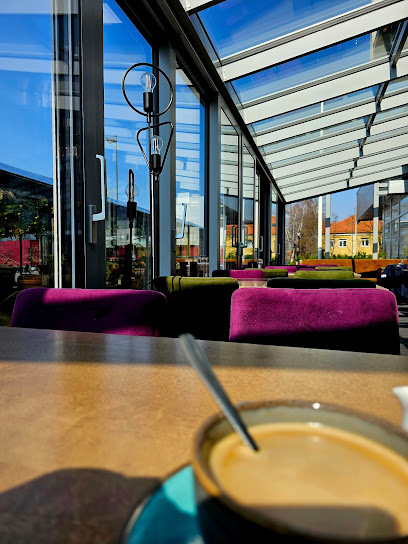
Savi Gastrobar
Discover the essence of Lithuanian cuisine at Savi Gastrobar, Marijampolė's vibrant gastropub offering local flavors and a welcoming atmosphere.
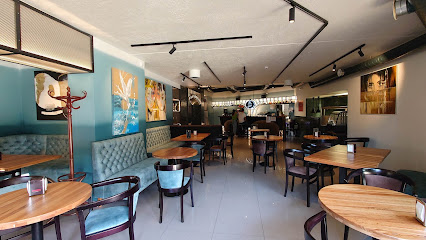
TORINO Lounge
Experience the inviting atmosphere and exquisite flavors at Torino Lounge, Marijampolė's culinary gem for travelers and locals alike.
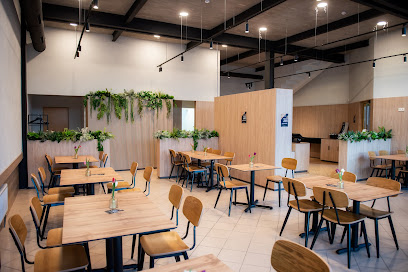
Bistro bistro
Experience the essence of Lithuanian cuisine at Bistro Bistro, a cozy bistro in Marijampolė that promises a memorable dining experience.
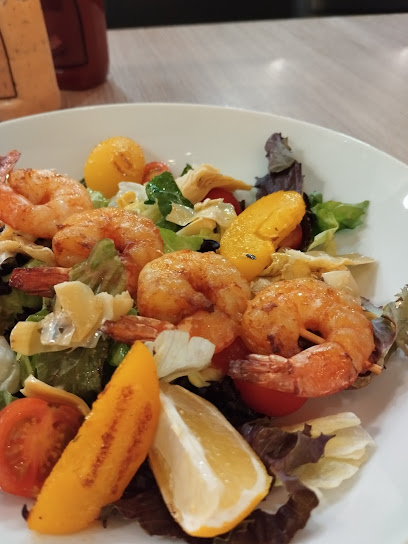
Local Phrases
-
- HelloLabas
[lah-bahs] - GoodbyeViso gero
[vee-soh geh-roh] - YesTaip
[taip] - NoNe
[neh] - Please/You're welcomePrašau
[prah-sow] - Thank youAčiū
[ah-choo] - Excuse me/SorryAtsiprašau
[ah-tsee-prah-sow] - How are you?Kaip tu?
[kai-p too] - Fine. And you?Gerai. O tu?
[geh-ry. oh too] - Do you speak English?Ar kalbate angliškai?
[ahr kahl-bah-teh ahng-leesh-kai] - I don't understandAš nesuprantu
[ahsh neh-soo-prahn-too]
- HelloLabas
-
- I'd like to see the menu, pleaseNorėčiau pamatyti meniu, prašau
[no-reh-chow pah-mah-ti-ti meh-nyoo, prah-sow] - I don't eat meatAš nevalgau mėsos
[ahsh neh-vahl-gow meh-sohs] - Cheers!Į sveikatą!
[ee svei-kah-tah] - I would like to pay, pleaseNorėčiau sumokėti, prašau
[no-reh-chow soo-moh-keh-ti, prah-sow]
- I'd like to see the menu, pleaseNorėčiau pamatyti meniu, prašau
-
- Help!Pagalba!
[pah-gahl-bah] - Go away!Eik šalin!
[ayk shah-leen] - Call the Police!Paskambinkite policijai!
[pah-skahm-bin-kee-teh poh-lee-tsai] - Call a doctor!Paskambinkite gydytojui!
[pah-skahm-bin-kee-teh gid-dih-toi] - I'm lostAš pasiklydau
[ahsh pah-sik-luh-dow] - I'm illAš sergu
[ahsh sehr-goo]
- Help!Pagalba!
-
- I'd like to buy...Norėčiau nusipirkti...
[no-reh-chow noo-see-peerk-tee] - I'm just lookingAš tik žiūriu
[ahsh teek zee-oo-ree-oo] - How much is it?Kiek tai kainuoja?
[kyek tai kai-noo-yah] - That's too expensiveTai per brangu
[tai pehr brahng-oo] - Can you lower the price?Ar galite sumažinti kainą?
[ahr gah-lee-teh soo-mah-zin-tee kai-nah]
- I'd like to buy...Norėčiau nusipirkti...
-
- What time is it?Kiek laiko?
[kyek lai-koh] - It's one o'clockYra viena valanda
[ee-rah vyeh-nah vah-lahn-dah] - Half past (10)Dešimt penkiolika
[deh-shimt pehn-kyoh-lee-kah] - MorningRytas
[rih-tahs] - AfternoonPopietė
[poh-pieh-teh] - EveningVakaras
[vah-kah-rahs] - YesterdayVakar
[vah-kahr] - TodayŠiandien
[shahn-dyehn] - TomorrowRytoj
[rih-toy] - 1Vienas
[vyeh-nahs] - 2Du
[doo] - 3Trys
[treese] - 4Keturi
[keh-too-ree] - 5Penki
[pehn-kee] - 6Šeši
[sheh-shee] - 7Septyni
[sehp-tee-nee] - 8Aštuoni
[ahs-too-oh-nee] - 9Devyni
[deh-vee-nee] - 10Dešimt
[deh-shimt]
- What time is it?Kiek laiko?
-
- Where's a/the...?Kur yra...?
[koor yrah] - What's the address?Kokia adresas?
[koh-kya ah-dreh-sahs] - Can you show me (on the map)?Ar galite man parodyti (žemėlapyje)?
[ahr gah-lee-teh mahn pah-roh-dee-tee zheh-meh-lah-pyeh] - When's the next (bus)?Kada sekančias (autobusas)?
[kah-dah se-kahn-chyahs ow-toh-boo-sahs] - A ticket (to ....)Bilietą (į ....)
[bee-lyeh-tah (ee)]
- Where's a/the...?Kur yra...?
History of Marijampolė
-
Marijampolė, situated in the Suvalkija region, traces its origins back to the 18th century. Initially, it was a small settlement known as Starapolė, which began to grow significantly when the Marijampolė Manor was established by the noble family of Butler. The town was eventually named after the Blessed Virgin Mary, reflecting its deep Catholic roots.
-
The official establishment of Marijampolė as a town is marked by the construction of the first wooden church in 1758 and the foundation of the Marian Fathers' Monastery. These events catalyzed the town's growth, making it a focal point for religious activity in the region.
-
In 1795, following the third partition of the Polish-Lithuanian Commonwealth, Marijampolė was annexed by the Russian Empire. During this period, the town experienced significant changes, including the development of infrastructure and an increase in administrative importance.
-
By the mid-19th century, Marijampolė had established itself as an educational center. The founding of the Marijampolė Gymnasium in 1840 played a crucial role in this transformation, attracting students from surrounding regions and fostering a vibrant intellectual community.
-
After World War I and the subsequent declaration of Lithuanian independence in 1918, Marijampolė saw a period of economic and cultural prosperity. It became a significant center for trade, industry, and education. The town's infrastructure expanded, and new cultural institutions were established, reflecting its growing importance.
-
Marijampolė, like much of Lithuania, suffered greatly during World War II. The town was occupied first by Soviet forces in 1940, followed by Nazi Germany in 1941. The Jewish community, which had been a vital part of Marijampolė's cultural fabric, faced tragic persecution, culminating in the Holocaust.
-
Post-World War II, Marijampolė was incorporated into the Soviet Union. This period was marked by industrialization and the imposition of Soviet policies. However, it was also a time of resistance, with many locals engaging in partisan activities against Soviet rule. The town continued to grow, with new factories and residential areas being developed.
-
The restoration of Lithuanian independence in 1990 marked a significant turning point for Marijampolė. The town embarked on a path of revitalization and modernization. Efforts were made to preserve its historical heritage while fostering economic development and cultural renewal.
-
Today, Marijampolė stands as a vibrant and dynamic town, balancing its rich historical legacy with contemporary progress. It is known for its cultural events, educational institutions, and a strong sense of community. The town continues to thrive, offering visitors a unique blend of history and modernity.
Marijampolė Essentials
-
Marijampolė is located in the southern part of Lithuania. The nearest major airport is Kaunas International Airport, approximately 70 kilometers away. From Kaunas, you can take a direct bus or train to Marijampolė, which typically takes around 1 to 1.5 hours. Alternatively, you can rent a car and drive, which offers more flexibility and the opportunity to explore the scenic Lithuanian countryside along the way.
-
Marijampolė is a compact city, making it easy to explore on foot. For longer distances, local buses and taxis are available and relatively inexpensive. The city's public transportation system is reliable, and buses connect various parts of Marijampolė as well as surrounding villages. Car rentals are also an option if you prefer to travel at your own pace and explore the surrounding region.
-
The official currency in Lithuania is the Euro (EUR). Credit and debit cards are widely accepted in most hotels, restaurants, and shops in Marijampolė. However, it is advisable to carry some cash for smaller establishments, local markets, and rural areas. ATMs are readily available throughout the city for cash withdrawals.
-
Marijampolė is generally a safe city for tourists. However, like any travel destination, it is important to take standard precautions. Avoid poorly lit areas at night and keep an eye on your belongings in crowded places. There are no specific high-crime areas targeting tourists, but always remain vigilant and aware of your surroundings.
-
In case of emergency, dial 112 for immediate assistance, which is the emergency number used across the European Union. Marijampolė has local police stations and medical facilities available. It is recommended to have travel insurance that covers medical emergencies. Pharmacies are accessible for over-the-counter medications and minor health issues.
-
Fashion: Do dress modestly, especially when visiting religious sites. Avoid wearing overly revealing clothing. Religion: Do respect local customs and traditions. Always cover your head when entering churches. Public Transport: Do be respectful and give up your seat to elderly passengers. Don't eat or drink on public transport. Greetings: Do greet people with a handshake. A friendly smile goes a long way. Eating & Drinking: Do try local delicacies and accept food offerings graciously. Don't refuse hospitality, as it is considered impolite.
-
To experience Marijampolė like a local, visit the local markets where you can buy fresh produce and traditional Lithuanian goods. Engage with locals, as they are often friendly and willing to share stories about the city's history and culture. Don't miss visiting the Marijampolė Cultural Center and the Vytautas the Great Park. For a unique experience, take a stroll along the Šešupė River, where you can enjoy beautiful views and a peaceful atmosphere.
Trending Landmark in Marijampolė
-
Poetry Park in Marijampolė
-
Jurgos kebabai
-
Marijampole Vytautas the Great Park
-
Mercure Marijampole
-
Kačių kiemelis
-
7 Miglos Marijampolė - Hookah shop bar - Kaljano tabakas - kaljanai ir kaljanų priedai - kaljano nuoma
-
Basilica of Saint Michael the Archangel
-
Marijampolė Tauro District Museum Dedicated to Partisans and Deportees
-
Kubilkiemis Antique Car and Motorcycle Museum
-
Marijampole Train Station
-
Marijampolė Tourism and Business Information Centre “SMART Marijampolė“
-
Memorial Museum of Lithuanian President K. Grinius
-
Marijampole Synagogue
-
Museum of the Blessed Jurgis Matulaitis
-
Holocaust Memorial
Nearby Cities to Marijampolė
-
Things To Do in Kaunas
-
Things To Do in Suwalki
-
Things To Do in Jonava
-
Things To Do in Vilnius
-
Things To Do in Panevėžys
-
Things To Do in Šiauliai
-
Things To Do in Bialystok
-
Things To Do in Utena
-
Things To Do in Klaipėda
-
Things To Do in Olsztyn
-
Things To Do in Daugavpils
-
Things To Do in Elblag
-
Things To Do in Liepaja
-
Things To Do in Jurmala
-
Things To Do in Riga









